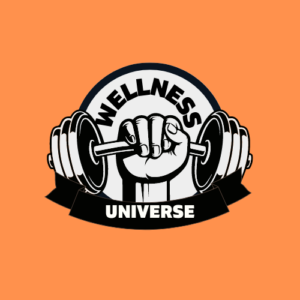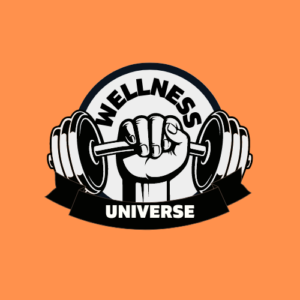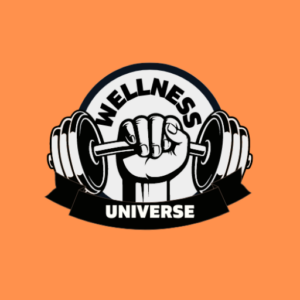In our 40s, we find ourselves at a pivotal stage of life where our bodies and priorities undergo significant changes. It is a time when taking care of our health becomes even more crucial. The choices we make in terms of fitness and lifestyle have a profound impact on our overall well-being and quality of life.
- Exploring the Significance:
As we enter our 40s, our bodies undergo various physiological changes. Metabolism tends to slow down, muscle mass decreases, and hormonal fluctuations become more pronounced. It is essential to understand the significance of maintaining fitness and health during this transformative decade.
- Key Health Concerns and Changes:
The 40s bring about specific health concerns that deserve our attention. Conditions such as weight gain, decreased bone density, cardiovascular issues, and hormonal changes become more prevalent. By focusing on our fitness and health, we can proactively address these concerns and maintain optimal well-being.
- Benefits of Prioritizing a Healthy Lifestyle:
Prioritizing fitness and health in our 40s offers numerous benefits. It not only helps us manage weight, increase energy levels, and improve physical strength, but it also positively impacts our mental well-being. By adopting healthy habits, we enhance our resilience, reduce the risk of chronic diseases, and increase our overall longevity.
So let’s embark on this journey together and unlock the secrets to thriving in your 40s with a focus on fitness and health.
Understanding Health Concerns in Your 40s

Entering your 40s marks a crucial stage of life where certain health concerns become more prominent. Understanding these concerns and taking proactive steps to address them is vital for maintaining optimal health and well-being throughout this decade.
- Weight Management:
Many individuals in their 40s experience weight gain or find it more challenging to maintain a healthy weight. This can be attributed to various factors such as a slower metabolism, hormonal changes, and lifestyle factors. It is essential to adopt a balanced approach to nutrition and engage in regular physical activity to manage weight effectively.
- Muscle Loss and Strength:
Age-related muscle loss, known as sarcopenia, becomes more noticeable in your 40s. Maintaining muscle mass and strength is crucial for overall functionality, metabolism, and injury prevention. Incorporating strength training exercises into your fitness routine can help preserve muscle mass and enhance strength.
- Chronic Disease Risk:
As we age, the risk of developing chronic diseases, such as heart disease, diabetes, and certain types of cancer, increases. Lifestyle factors, including diet, physical activity levels, and stress management, play a significant role in reducing the risk of these diseases. Adopting healthy habits and making positive lifestyle changes can contribute to long-term disease prevention.
- Hormonal Changes and Menopause:
Hormonal fluctuations, particularly during perimenopause and menopause, can have a significant impact on health in your 40s. These changes can lead to symptoms such as hot flashes, mood swings, and changes in metabolism. Seeking medical guidance and adopting strategies to manage menopause symptoms can help mitigate their impact on overall well-being.
- Regular Health Screenings and Check-ups:
Regular health screenings and check-ups are essential for detecting potential health issues early on. These screenings may include blood pressure checks, cholesterol tests, mammograms, and screenings for certain cancers. By staying proactive with your healthcare, you can identify and address any health concerns promptly.
By understanding these key health concerns in your 40s, you can make informed decisions about your health and take necessary steps to mitigate risks.
Fitness and Exercise for Your 40s
Regular exercise is crucial for maintaining fitness, vitality, and overall health in your 40s. Engaging in a well-rounded exercise routine that includes cardio, strength training, and flexibility exercises can offer numerous benefits and help you stay fit and active.
- Cardiovascular Exercise:
Cardiovascular exercise, also known as aerobic exercise, is vital for maintaining a healthy heart, managing weight, and improving overall endurance. Some recommended cardio activities for individuals in their 40s include brisk walking, jogging, cycling, swimming, dancing, and aerobics classes. Aim for at least 150 minutes of moderate-intensity cardio exercise or 75 minutes of vigorous-intensity exercise per week.
- Strength Training:
Incorporating strength training exercises into your fitness routine is crucial for preserving muscle mass, improving bone density, and boosting metabolism. Focus on exercises that target major muscle groups, such as squats, lunges, push-ups, and weightlifting. Aim to engage in strength training activities at least two to three times per week, allowing for recovery between sessions.
- Flexibility and Stretching:
Maintaining flexibility and mobility becomes increasingly important as you age. Incorporate stretching exercises and activities like yoga or Pilates into your routine to enhance flexibility, improve posture, and reduce the risk of injuries. Stretch major muscle groups regularly, holding each stretch for 15-30 seconds.
It’s important to listen to your body and start with exercises that suit your fitness level. If you’re new to exercise or have any underlying health conditions, consult with a healthcare professional or certified fitness trainer before beginning a new exercise program.
Finding time and motivation can be common barriers to regular exercise in your 40s. However, with proper planning and a few strategies, you can overcome these challenges and make fitness a priority:
- Schedule It:
Treat exercise as an important appointment and schedule it in your calendar. Set aside dedicated time for physical activity and stick to it as you would any other commitment.
- Make It Enjoyable:
Choose activities you enjoy to make exercise more enjoyable and sustainable. Whether it’s dancing, swimming, hiking, or playing a sport, find activities that bring you joy and keep you motivated.
- Find an Exercise Buddy:
Exercising with a friend or family member can provide motivation and accountability. Consider finding a workout buddy who shares similar fitness goals or joining group fitness classes or sports teams.
- Make It a Habit:
Consistency is key to maintaining a fitness routine. Start with small, achievable goals and gradually increase intensity and duration over time. Incorporating exercise into your daily routine will make it a habit.
Remember to warm up before exercising and cool down afterward to prevent injuries and aid in recovery. Listen to your body and modify exercises as needed, and always stay hydrated during workouts.
Regular physical activity in your 40s offers numerous benefits for your overall health and well-being:
- Weight Management:
Exercise helps maintain a healthy weight by burning calories and increasing metabolism, which can become more challenging with age.
- Improved Cardiovascular Health:
Cardiovascular exercises strengthen the heart, lower blood pressure, and reduce the risk of heart disease.
- Increased Strength and Muscle Mass:
Strength training exercises preserve muscle mass, improve strength, and enhance overall physical performance.
- Enhanced Bone Health:
Weight-bearing exercises, such as walking or weightlifting, help maintain bone density and reduce the risk of osteoporosis.
- Stress Relief and Mental Well-being:
Exercise releases endorphins, reduces stress, improves mood, and promotes mental well-being.
- Better Sleep:
Regular exercise can improve sleep quality and duration, helping you feel more rested and energized.
- Reduced Risk of Chronic Diseases:
Physical activity lowers the risk of chronic conditions such as diabetes, certain cancers, and cardiovascular diseases.
By incorporating regular exercise into your lifestyle, you can reap these benefits and promote your overall health and well-being in your 40s and beyond.
Maintaining a Healthy Weight in Your 40s
Maintaining a healthy weight is essential for overall health and well-being in your 40s. As metabolism tends to slow down and hormonal changes occur during this stage of life, adopting a balanced approach to nutrition and portion control is key to managing your weight effectively.
Balanced Nutrition
Focus on consuming a well-rounded diet that includes a variety of nutrient-dense foods. Aim to incorporate the following elements into your daily meals:
- Lean Protein
Include lean protein sources such as poultry, fish, beans, legumes, and tofu. Protein helps build and repair tissues, promotes satiety, and supports muscle health.
- Whole Grains
Opt for whole grains like quinoa, brown rice, whole wheat bread, and oats. They provide fiber, vitamins, and minerals while keeping you feeling fuller for longer.
- Fruits and Vegetables
Consume a colorful array of fruits and vegetables to obtain essential vitamins, minerals, antioxidants, and fiber. These foods promote optimal health and help control calorie intake.
- Healthy Fats
Include sources of healthy fats like avocados, nuts, seeds, and olive oil. These fats provide essential fatty acids, promote satiety, and support overall well-being.
- Hydration
Stay hydrated by drinking plenty of water throughout the day. Water helps maintain proper bodily functions, aids digestion, and can help prevent overeating.
Portion Control
Pay attention to portion sizes to avoid overeating. Use smaller plates and bowls to create the illusion of a fuller plate. Be mindful of your hunger and fullness cues and avoid eating in front of screens or while distracted.
Mindful Eating
Practice mindful eating by savoring each bite, chewing slowly, and paying attention to your body’s hunger and satiety signals. This approach can help prevent overeating and promote better digestion.
Regular Meal Patterns
Establish regular eating patterns by having three balanced meals a day and incorporating healthy snacks when needed. Consistency in meal timing helps regulate your metabolism and promotes better portion control.
Stay Active
Regular physical activity plays a vital role in weight management. Engage in a combination of cardio exercises and strength training to boost your metabolism, burn calories, and maintain muscle mass.
Manage Stress
Chronic stress can impact weight management. Practice stress-reducing techniques such as meditation, yoga, deep breathing exercises, or engaging in hobbies that bring you joy and relaxation.
Seek Professional Guidance
If you’re struggling with weight management or have specific dietary concerns, consider consulting a registered dietitian or nutritionist who can provide personalized guidance and support.
Remember, maintaining a healthy weight is not just about a number on the scale but about overall well-being. Focus on adopting sustainable habits, nourishing your body with nutrient-dense foods, staying physically active, and embracing a positive mindset.
Nutrition Tips for Your 40s
As you enter your 40s, it becomes increasingly important to prioritize nutrition to support your overall health and well-being. During this stage of life, your body may have specific nutritional needs to maintain energy levels, support metabolism, and promote bone health. By making informed food choices and incorporating whole, nutrient-dense foods into your diet, you can optimize your nutrition and enhance your vitality.
Adequate Protein Intake
Protein is crucial for muscle maintenance, repair, and overall health. Aim to include lean sources of protein in your meals, such as poultry, fish, tofu, legumes, and low-fat dairy products. Including protein with each meal can help you feel fuller for longer, support muscle mass, and aid in maintaining a healthy weight.
Fiber-Rich Foods
Adequate fiber intake is essential for digestive health, managing weight, and preventing chronic diseases. Include a variety of fruits, vegetables, whole grains, legumes, nuts, and seeds in your diet to increase your fiber intake. These foods not only provide essential nutrients but also promote satiety and support bowel regularity.
Essential Nutrients
Pay attention to consuming a wide range of essential nutrients to support your overall health. Ensure you include the following nutrients in your diet:
- Calcium
Calcium is crucial for maintaining bone health. Incorporate calcium-rich foods such as dairy products, leafy green vegetables, fortified plant-based milk, and tofu into your diet.
- Vitamin D
Vitamin D works in conjunction with calcium for optimal bone health. Get regular sun exposure, include fatty fish, fortified dairy products, and fortified cereals in your diet, or consider a vitamin D supplement if needed.
- Omega-3 Fatty Acids
Omega-3 fatty acids contribute to heart health and cognitive function. Include fatty fish (such as salmon, mackerel, and sardines), walnuts, chia seeds, and flaxseeds in your diet to boost your omega-3 intake.
- B Vitamins
B vitamins play a role in energy metabolism and overall vitality. Incorporate sources of B vitamins, such as whole grains, lean meats, eggs, legumes, and leafy green vegetables, into your meals.
- Healthy Fat Choices
Include sources of healthy fats in your diet, such as avocados, nuts, seeds, olive oil, and fatty fish. These fats provide essential fatty acids, promote brain health, and support heart health.
- Hydration
Drink an adequate amount of water throughout the day to maintain hydration and support optimal bodily functions. Water is essential for digestion, nutrient absorption, and cellular health.
- Limit Processed Foods and Added Sugars
Minimize your intake of processed foods, sugary snacks, and beverages. These items often lack essential nutrients and may contribute to weight gain and increased risk of chronic diseases.
- Mindful Eating
Practice mindful eating by paying attention to your body’s hunger and fullness cues. Eat slowly, savor each bite, and listen to your body’s signals to prevent overeating and promote better digestion.
- Regular Mealtimes
Establish regular meal times to support a balanced eating routine. Aim for three balanced meals a day with healthy snacks when needed. Consistency in meal timing can help regulate your metabolism and maintain steady energy levels.
By following these nutrition tips, you can nourish your body with the necessary nutrients, support your overall health, and maintain energy levels throughout your 40s.
In Crux
Congratulations on completing this comprehensive guide on staying fit and healthy in your 40s! By now, you have gained valuable insights into the importance of fitness, the key health concerns in this stage of life, exercise recommendations, weight management strategies, nutrition tips, and more. Armed with this knowledge, you are well-equipped to embark on a journey of prioritizing your health and well-being.
Remember, your 40s are a crucial time to invest in yourself and make conscious choices that will benefit you in the long run. It’s never too late to embrace a healthy and active lifestyle. By adopting the principles discussed in this guide, you can improve your overall health, maintain your fitness, and enhance your quality of life.
It’s important to approach your health and fitness journey with patience, consistency, and self-compassion. Progress may not happen overnight, but every small step you take toward a healthier lifestyle is significant. Focus on making sustainable changes that align with your preferences and values. Find joy in the process of taking care of yourself and appreciate the positive impact it has on your well-being.
Surround yourself with a supportive community or seek guidance from professionals such as fitness trainers, nutritionists, or healthcare providers who can help you along your journey. Share your goals and progress with loved ones who can provide encouragement and accountability.
Remember, your health encompasses not only physical well-being but also mental and emotional well-being. Prioritize self-care and stress management techniques to maintain a healthy balance in your life. Practice mindfulness, engage in activities that bring you joy and relaxation, and prioritize quality sleep. Taking care of your mental well-being is just as important as taking care of your physical health.
As you navigate your 40s and beyond, always listen to your body. It’s unique, and its needs may change over time. Pay attention to any signs or symptoms that may require medical attention and make regular check-ups and health screenings a priority.
In conclusion, your 40s can be a transformative period in your life, and embracing a healthy and fit lifestyle can have a profound impact on your overall well-being. By incorporating regular exercise, maintaining a balanced diet, managing stress, and seeking professional guidance when needed, you can enhance your vitality, improve your longevity, and enjoy the benefits of a healthy and active life.
Remember, you have the power to make positive choices that support your health and well-being. Embrace the opportunity to prioritize yourself and lead a life filled with energy, vitality, and fulfillment. Here’s to a healthy and fit journey in your 40s and beyond!
Thank you for joining us on this fitness journey! We hope you found our How to Stay Fit in Your 40s and Beyond blog insightful and inspiring. Our aim is to provide you with valuable information, expert advice, and motivational content to support you in your wellness endeavors.
Related Post :-
- How To Do Wall Pushups
- Batman Workout
- CrossFit Unleashed
- Barbell Lunges
- Online Coaching
- Kettlebell Circuit
- Man Boob Dilemma
How to Stay Fit in Your 40s FAQ
How can I stay fit and healthy in my 40s compared to earlier years?
In your 40s, it's important to focus on maintaining a balanced exercise routine that includes cardio, strength training, and flexibility exercises. Pay attention to your nutritional needs, prioritize stress management, and stay proactive in managing your overall health through regular check-ups and screenings.
What exercises are recommended for staying fit in your 40s?
Recommended exercises for staying fit in your 40s include activities that improve cardiovascular health, such as brisk walking, jogging, or cycling. Strength training exercises are essential for maintaining muscle mass, and flexibility exercises like yoga or Pilates can improve mobility and prevent injuries.
How can I maintain a healthy weight in my 40s?
Maintaining a healthy weight in your 40s involves adopting a well-balanced diet that includes plenty of fruits, vegetables, lean proteins, and whole grains. Portion control, mindful eating, and regular physical activity are key components of weight management.
What diet and nutrition tips are important for people in their 40s?
Important diet and nutrition tips for people in their 40s include ensuring adequate protein intake for muscle health, consuming foods rich in calcium and vitamin D for bone health, incorporating fiber-rich foods for digestion, and staying hydrated. It's also important to limit processed foods, added sugars, and unhealthy fats.
How can I manage stress and maintain mental well-being in my 40s?
Managing stress and maintaining mental well-being in your 40s can be achieved through various techniques such as regular exercise, practicing mindfulness and relaxation techniques, seeking social support, pursuing hobbies, getting enough sleep, and considering stress-reducing activities like yoga or meditation.
Are there specific health screenings or check-ups I should prioritize in my 40s?
In your 40s, it's essential to prioritize regular health screenings and check-ups. Some important screenings may include blood pressure checks, cholesterol tests, diabetes screenings, mammograms for women, and colon cancer screenings. Consult with your healthcare provider to determine the appropriate screenings based on your personal health history.
What are some effective strategies for managing menopause symptoms in your 40s?
Managing menopause symptoms in your 40s may involve strategies such as regular exercise, maintaining a healthy weight, practicing stress reduction techniques, staying hydrated, and discussing hormone replacement therapy or other treatment options with your healthcare provider.
How can I prevent age-related muscle loss and maintain strength in my 40s?
To prevent age-related muscle loss and maintain strength in your 40s, it's important to incorporate regular strength training exercises into your fitness routine. Focus on exercises that target major muscle groups and gradually increase the intensity over time. Adequate protein intake is also essential for muscle health.
What are the benefits of incorporating strength training into my fitness routine in my 40s?
Incorporating strength training into your fitness routine in your 40s offers numerous benefits. It helps build and maintain muscle mass, increases bone density, improves metabolism, enhances overall physical performance, reduces the risk of injury, and promotes better balance and posture.

Meet Pradeep Singh, your go-to guide for all things fitness, health, and motivation. With over 7 years in the field, Pradeep brings a blend of expertise and real-world experience to his writing. From workout tips to healthy living insights, he simplifies complex topics, making fitness accessible for everyone. His authentic approach and genuine passion aim to inspire and support your wellness journey. Get ready to embark on a path to a healthier lifestyle with Pradeep as your trusted companion and motivator.






















